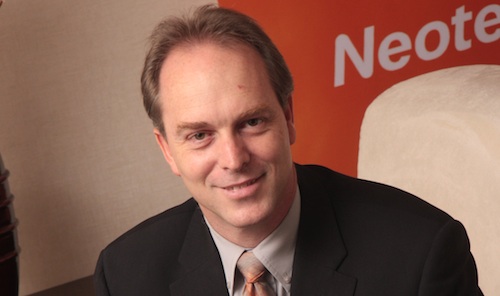
Unbundling the local loop is the last step to making SA’s telecommunications landscape fully competitive, says Neotel chief technology officer Angus Hay.
Hay tells TechCentral that allowing other operators access to the physical cable infrastructure into people’s homes is the best way of boosting competition in the broadband market.
Telkom owns most of this infrastructure. However, communications minister Roy Padayachie has told the partially state-owned company — government directly holds 39,8% of its equity — that it must provide access to its copper access network to competitors by November 2011.
Those in favour of unbundling argue that taxpayers paid for the infrastructure, and Telkom therefore has no right to exclusive control over it.
Neotel was once regarded as the company that would benefit most from unbundling. However, Hay says the operator will survive if the local loop remains in Telkom’s control.
Despite that, he says Neotel would welcome unbundling given that the only way it can provide services to consumers now is by rolling out its own access network, using either fibre or wireless solutions.
“Unbundling would mean that if a customer was looking to use our services in an area where we don’t have our own infrastructure we wouldn’t have to say no to them,” says Hay.
Some companies — including Neotel and rivals like iBurst — have built wireless alternatives. But Hay says the only way operators can start bringing truly compelling broadband products to South Africans is through wireline infrastructure.
“Local-loop unbundling would go a long way in providing that. It will have a bigger impact on the broadband market than on the voice market because there really are many other ways to provide voice.”
He says that although wireless has proved to be a compelling alternative to fixed-line broadband, it has a finite capacity to provide high-speed Internet services to consumers.
“There is an overall theoretical problem that no one in industry really has an answer for and that is, ‘what happens when we run out of spectrum’.”
Broadband delivered wirelessly requires access to expensive and scarce spectrum. And spectrum is already hard to come by, and will never become more abundant.
Hay says wireless will always be a way to connect people, but will eventually be used primarily for mobile devices like smartphones and tablet PCs.
“It will never be enough for the business environment. For the bigger services in the corporate market and to provide true broadband we need access to fixed lines.”
He says local-loop unbundling is the last regulatory hurdle that SA faces, especially when compared to European markets. They’re needed to bolster the facilities leasing regulations, which compel operators to provide reasonably priced access to essential facilities like undersea cables.
Carrier preselect regulations are also on the way. These will allow customers to choose which carrier they want to use by dialling a pre-existing code before making a call.
Geographic number portability was the last step the local regulator took in driving competition in the market. It allows customers to change operators and take their old number with them.
Hay says internationally all of these regulatory interventions have led to and enhanced local loop unbundling and will do so in SA, too. — Candice Jones, TechCentral
This is the first in a series of articles on local-loop unbundling that TechCentral will publish in the coming months
- Subscribe to our free daily newsletter
- Follow us on Twitter or on Facebook




